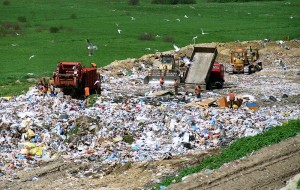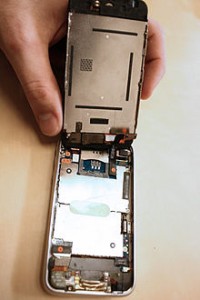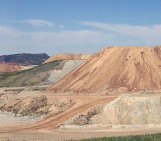Waste and recycling is a growing issue in a world where abundant resources are diminishing. This week Flo Bullough looks at recent policy activity in the area of ‘valuing waste streams’ and the geo-relevant example of Rare Earth Elements.
This week, the House of Lords Science and Technology committee has been taking oral evidence on the topic of ‘Generating value from waste’ with a particular focus on the technology and processes used to

House of Lords Chamber. Source – Wikimedia Commons
salvage raw materials from waste and what the government can do to encourage and assist progress in this area.
This topic was also discussed in a recent European Commission consultation on the Review of European Waste Management Targets and the Raw Material initiative which highlights the importance of recycling to ensure safe access to raw materials. Consultations like these seek to engage with experts in the relevant field and are useful research and fact-finding exercises to inform future government policy.
This is all part of a wider plan to try and incorporate the disposal and cost of waste into the manufacturing life cycle. Additionally, waste is not just a cost burden but can also be a source of valuable materials that can be recycled. In 2009 Friends of the Earth published a report entitled Gone to Waste – The valuable resources that European countries bury and burn. This included data on the value of the waste we don’t recycle and the associated CO2 emissions. The report also attempted to calculate the monetary value of recyclables. They found that in the UK in 2004, the value of materials classified as ‘key recyclables’ that had been disposed of as waste, was a minimum of £651 million (based on values for materials such as glass, paper, iron, steel and biowaste. Rare earth elements were not included in their study).

Landfill Site. Source – Wikimedia Commons.
Geo-Relevant Example – Rare Earth Elements

Internal view of an iPhone. Rare earth elements are used in the manufacture of electronics such as smart phones but when replaced often end up in landfill. Source – Wikimedia Commons
The concept of valuable waste is particularly true of the rare earth elements that end up in waste streams through discarded electronics. Demand for rare earth elements is soaring while scarcity and market cost is increasing. Rare earth elements are essential to many commonplace electronics such as mobile phones and computers as well as in renewable technology such as wind power. The supply of these materials is finite and the market is currently dominated by China (see this excellent post from Geology for Global Development on the issue) which has its own geopolitical implications and so increasing focus from both an environmental and economic perspective is to extract these valuable materials from waste streams.
In terms of current research into Rare Earth Element recycling, Japan is the only place where significant research is being undertaken. An example of this is Hitachi who are aiming to be able to recycle electric motor magnets. It was also announced last year that the US is to build a $120 million ‘Critical Materials’ institute in Iowa which will focus, amongst other things on developing recycling techniques.
For more information see the following links:
Chemistry World – Recycling rare earth elements using ionic liquids
Mining.com – Rare earths recycling on the rise
POST note from the Parliamentary Office of Science and Technology – Rare Earth Elements




Al Taylor
Hi, you might be interested in some work done up at York. There is a programme looking at phytoremediation, that is using plants to uptake metals from roadside verges, and one of the project leads, Andy Hunt, edited a book for the RSC entitled “Element Recovery and Sustainability”
http://www.rsc.org/shop/books/2013/9781849736169.asp
http://www.york.ac.uk/chemistry/research/green/research/projects/phytocat/
Pingback: Climate and Policy Roundup – January 2014 | Four Degrees